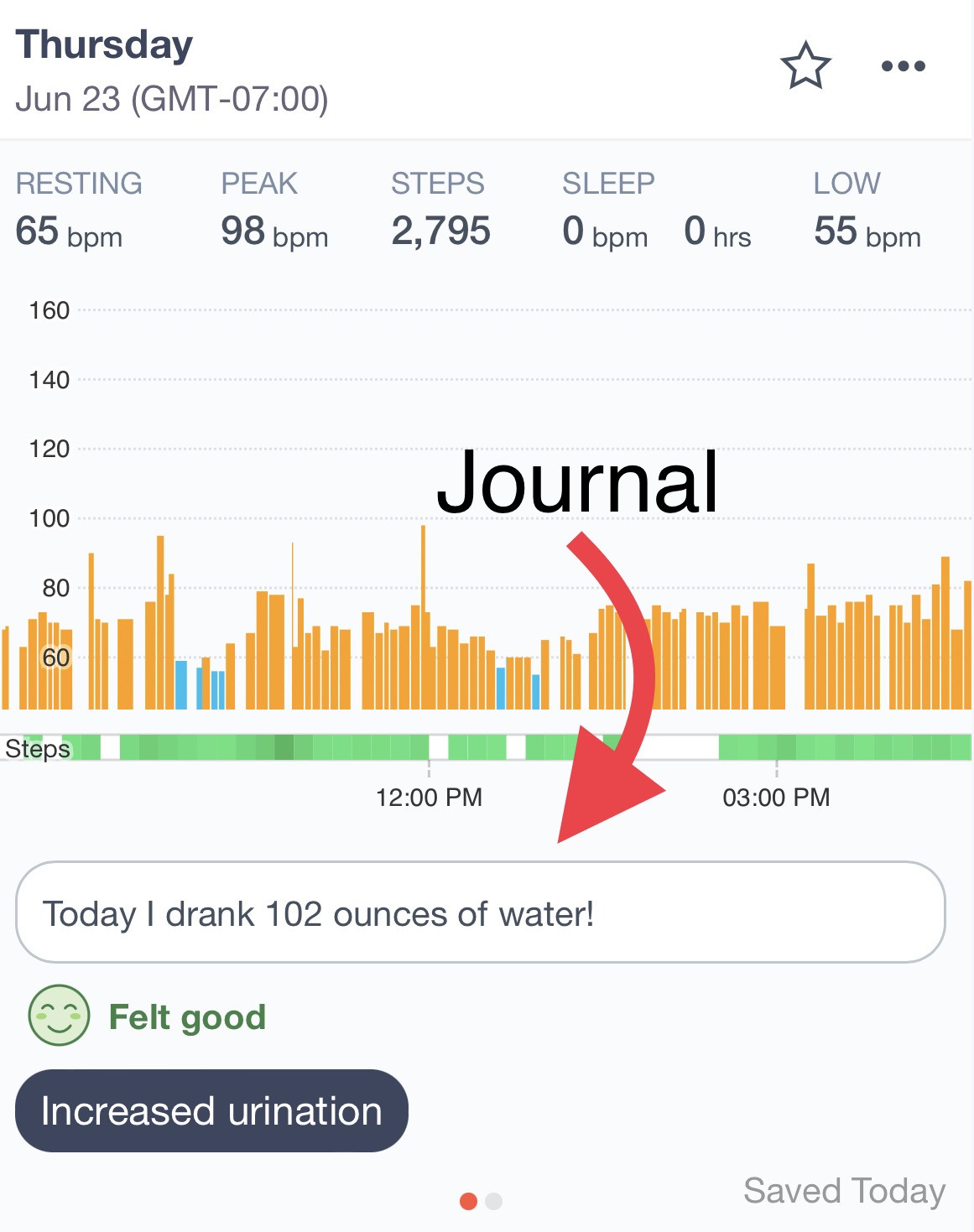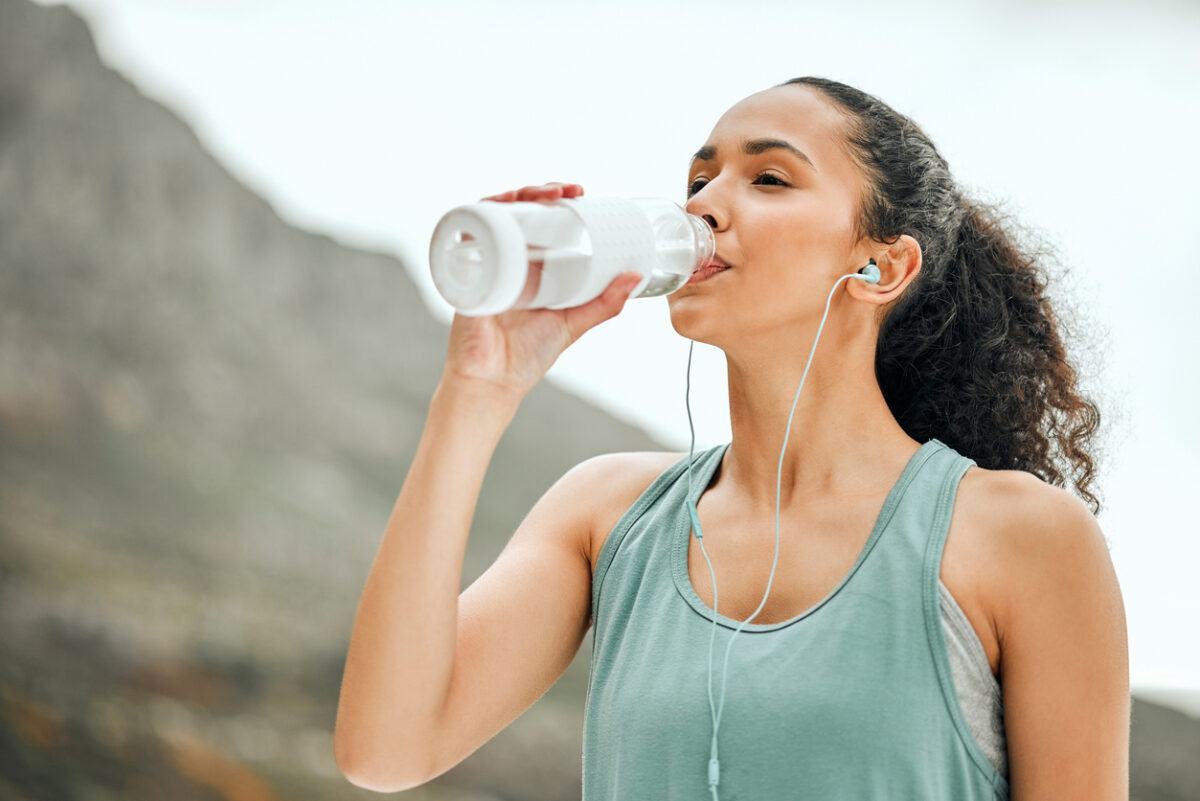While most of us are aware that maintaining proper hydration is key to good health and wellness, it’s less obvious that hydration is also directly related to heart health.
Hydration and Heart Health
It’s been proven that staying hydrated can support heart health.1 In fact, the National Institutes of Health conducted a study which demonstrated that consistently maintaining proper hydration can slow down the weakening in cardiac function as and lower risk of heart failure, in addition to aiding the body in other vital functions.2
Heart failure occurs when the heart is unable to pump the amount of blood needed by the body. Over 6.2 million Americans alone are impacted by heart failure, typically in those who are 65 years of age and older.3
One of the main reasons hydration is so essential for heart health is that proper hydration actually helps to thin the blood. This aids the heart in its effort to get blood to all of the muscles through the blood vessels. Which also helps to keep your muscles healthy.3
About Body Water
Keeping your body consistently hydrated is not always easy. Especially if you’re not already in the habit of drinking water or keeping track of water intake throughout the day. However, ensuring that your body consistently receives the optimal amount of fluid is absolutely worth the effort.
Before we dive into how you can stay hydrated, it’s first important to understand that our body fluid is composed mostly of water. For an average sized man, body water accounts for 50%-60% of total body weight. And in women, body water accounts for 45% to 50% of total body weight. Women have a lower percentage because, on average, women have more body fat, which doesn’t retain water well.
Being the most abundant component of body fluid, water is required in adequate amounts in order for our bodies to function properly.
Water is used by the body to:
- Act as a solvent for many body chemicals
- Aid various chemical reactions
- Maintain stability of body fluids
- Aid nutrient transport to cells
- Provide a medium for waste excretion
- Act as a lubricant between cells to permit friction-free movement
- Aid body temperature regulation through perspiration
- Assist in the hydrolysis of food
- Conduct electrical currents
- Act as a cushion
Maintaining Hydration
Now that it's clear just how important hydration is, let’s look at how to maintain proper hydration. Thankfully, the key to staying hydrated is really rather simple: fluid balance is maintained when water intake equals water output. In other words, so long as you’re replenishing yourself with the same amount of fluid lost, through sweating, urinating, etc., you’ll remain in balance.
The primary source of body fluid intake is through ingesting water. This intake come not only from drinking water itself, but also by drinking other fluids and eating water-containing foods. However, it is important to note here that not all food and drink are equal, as some can actually dehydrate you. And that drinking enough water throughout the day is usually the best way to make sure you’re staying hydrated.
According to the U.S. National Academies of Sciences, Engineering, and Medicine, the recommended amount of daily fluid intake is:
- Men: Around 15.5 cups (124 ounces) of fluids per day
- Women: Around 11.5 cups (92 ounces) of fluids per day
Of course, the exact amount of fluid your body needs is dependent on a number of factors and will vary day-by-day. One of these influencing factors is gender. As seen in the example above, men typically need to take in more water simply because they have a larger amount of body water as a whole.
Other factors that can impact hydration include:
Climate: During the warmer months, whether you’re simply enjoying the weather, exerting yourself physically, or traveling, you’re naturally losing more fluid than you would when it’s cooler.
Perspiration: Those who sweat more profusely will become more dehydrated than someone who does not if not replenishing themselves. (Note that not sweating, even when engaging in intense physical activity, could also be a sign of dehydration, even to the point of heat stroke).3
Exercise: The more you exercise, the more important it is to drink more water. Both for overall health and hydration, and to ensure that muscles receive the blood flow they need for proper recovery.
Diet: As mentioned earlier, certain foods and drinks are more likely to dehydrate you than others, while others can replenish you. For instance, many fruits, particularly melons, have a high water content and can help to rehydrate you. On the other hand, when consuming beverages like coffee and teas that contain caffeine, you wind up losing more fluids due to their diuretic nature. (To avoid dehydration, follow each caffeinated drink with a glass of water).
Anytime you find yourself out of balance due to these or a plethora of other factors, you can reestablish your equilibrium simply by drinking more water.
Is it Possible to Drink Too Much Water?
Believe it or not, while uncommon, it actually is possible to drink too much water. The reason consuming too much water can pose a threat is that it could dilute your blood’s sodium content to a dangerous level. If it gets low enough, it can cause hyponatremia, which can be fatal.
How Do I Know if I'm Dehydrated?
Dehydration simply means having a deficit of water and can indicate loss of both water and sodium. Contrary to popular belief, relying on thirst is actually not the signal that you need to drink. Rather, it’s a red flag that you’re already dehydrated.3
One of the best and easiest ways to know whether or not you’re dehydrated is to notice the color of your urine. If your urine ranges from clear to pale yellow, you’re likely well-hydrated. On the other hand, if it’s dark yellow or nearing brown, this is an indicator that you need to drink more water. Of course, there are many other symptoms associated with dehydration.
Symptoms of dehydration include:
- Headache
- Thirst
- Dry skin and mucous membranes
- Elevated temperature
- Weight loss
- Decreased or concentrated urine
Cardiac symptoms of dehydration include:
- Tachycardia
- Weak pulses
- Postural hypotension
Using Cardiogram to Maintain Hydration
We want to make sure you're staying hydrated so that you and your heart can be your healthiest. The best way to use Cardiogram to keep up with hydration is to use the journal section of your app:

You can keep track of things like how many ounces you drank throughout the day, the color of your urine, and how you were feeling as a result. And remember, you can also create your own symptoms in the app!


